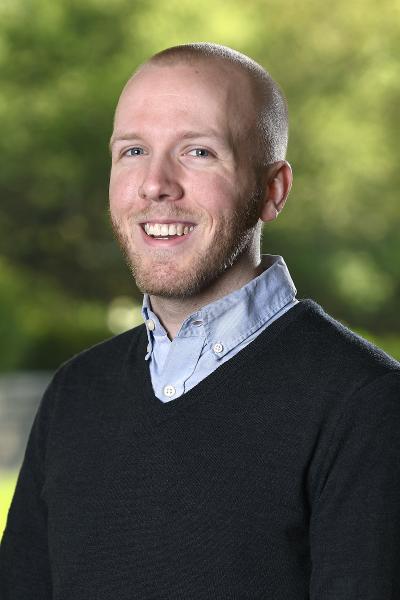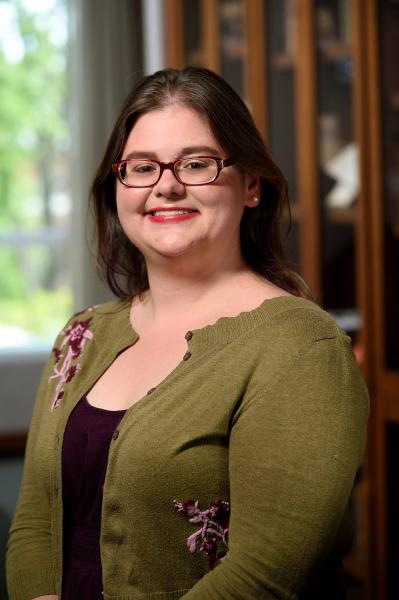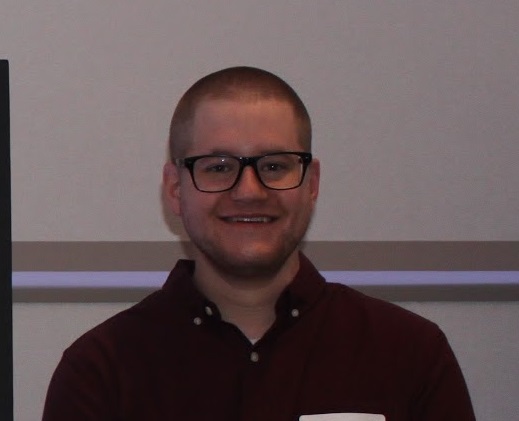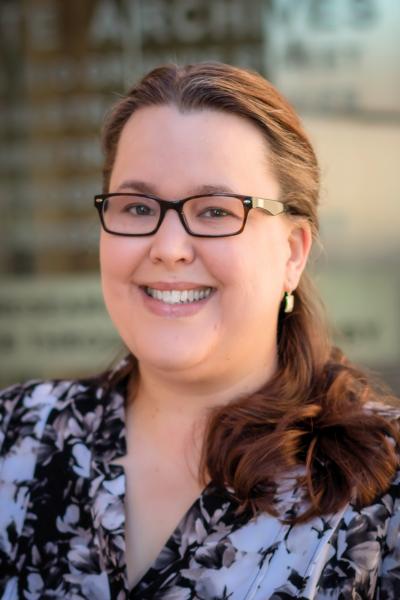- About Archives
- About SAA
- Careers
- Education
- Publications
- Advocacy
- Membership
Archivist for Metadata and Digital Projects, Bentley Historical Library

Dallas Pillen is the Archivist for Metadata and Digital Projects at the Bentley Historical Library, where he has worked extensively on the Bentley's ArchivesSpace implementation, including migrating legacy metadata, establishing new descriptive guidelines and workflows, training staff, and developing local ArchivesSpace plugins. Dallas also oversees the Bentley's web archiving initiatives, including its use of Archive-It and various social media capture tools, and assists with a wide range of projects involving born-digital and digitized materials and metadata cleanup, reuse, and encoding. He is a graduate of Wayne State University's School of Library and Information Science and previously worked for the Walter P. Reuther Library of Labor and Urban Affairs, the Detroit Historical Society, and the Detroit Jewish News Foundation.
I have worked with structured archival description throughout my career, including extensively updating, refining, and preparing the Bentley Historical Library's legacy EADs for migration to ArchivesSpace and working to ensure that the Bentley's descriptive and encoding practices meet the library's evolving needs for internal and external discoverability, metadata reuse, and systems interoperability. I have gained a great appreciation for the affordances of thoughtfully developed and implemented archival encoding standards and for the importance of groups such as the Encoded Archival Standards Section in providing resources to and sharing knowledge with the wider archival community. With the emergence and wider adoption of new and updated standards and tools, the next several years will be an exciting and vital time for the section and, as co-chair, I would strive to ensure that the EAS Section is performing the necessary outreach to its community in order to provide accessible, up-to-date, and relevant educational materials, tools, and other resources to facilitate the implementation, transformation, and dissemination of encoded archival standards.
Digital Archivist, Johns Hopkins University
 Biographical Statement
Biographical StatementThough I cut my teeth in the archives world by learning to encode finding aids in EAD, my career trajectory has encouraged me to think more broadly about the role that standardS (plural) play in helping to connect end users to archival materials. As I now work primarily with born-digital materials, I often find myself asking how existing machine-generated metadata can be repurposed to serve as a starting point for human-readable description of born-digital collections; how to generate structured description that is interoperable between systems; and how to leverage APIs and linked open data to avoid repetitive description and/or versioning problems. With past experience working in a state university manuscript repository, a small liberal arts college archives, and a large research university archives, I also acknowledge that encoding standards must strike a fine balance between structure and flexible adaptability in order to not become a burden to differently resourced institutions. The recent transition of the EAD Roundtable into the Encoded Archival Standards Section reinforces to me that I am not alone in asking questions about how many standards can be leveraged to better meet the needs of archivists and archival researchers alike.
Lora J. (Davis) Woodford is the Digital Archivist at Johns Hopkins University, where she is tasked with creating, documenting, and managing workflows for acquiring, describing, processing, preserving, and providing access to born-digital materials. Lora received her MLIS from the University of Wisconsin-Milwaukee and MA in the history of industrialization and technology from the University of Delaware's Hagley Graduate Program, and was previously Collections Archivist in the Colgate University Libraries and Library Analyst at the University of Delaware Special Collections. Her professional interests focus on applying technological solutions to generating, improving, migrating, and making accessible archival collection descriptions for end user consumption. Lora has taught several “Introduction to APIs for Archivists” workshop, will be teaching a semester-long course on digital preservation in the spring of 2018, and was recently named to the inaugural Core Committers Group for the ArchivesSpace project.
Project Archivist, Bentley Historical Library

Devon Proudfoot is a Project Archivist at the University of Michigan's Bentley Historical Library. He is a 2016 graduate of the University of Michigan's School of Information, with a specialization in Archives and Records Management, and has previously worked as a processor at the Center for Archival Collections at Bowling Green State University and as a Curation Assistant at the Bentley Historical Library. Devon's work at the Bentley as a Project Archivist and as a student employee has included a comprehensive legacy EAD cleanup project, which involved reconciling multiple versions of finding aids and preparing EAD for migration to ArchivesSpace, in addition to processing archival collections, enhancing archival description to promote hidden collections, and assisting with the library's ArchivesSpace documentation.
As a student employee at the Bentley Historical Library, I worked on a comprehensive legacy finding aid and EAD reconciliation and cleanup project to ensure consistency between various versions of the library's legacy description; to enhance and clean up the description where possible; and to prepare the Bentley's legacy EAD for migration to ArchivesSpace. Working on this project has given me an appreciation for encoded archival description and has educated me about how it can offer enhanced access to collections and interoperability between systems. As a member of the steering committee I aim to highlight the benefits that are offered by EAD3 and EAC-CPF, through various resources available to the archival community. Helping to lower the barrier for implementing these tools would be one of my main areas of focus in working with the committee.
Digital Archives Manager, Utah State Archives and Records Service

I am from and still make my home in the great state of Utah. Outside of the archives I enjoy playing musical instruments, going to museums, watching anything with a British accent, and cataloging my own books.
I have been working with EAD for almost 15 years, evolving from hand-coding to participating in a regional grant to create an encoding system. I am also responsible for transforming the XML files for web publication. I recently started to learn more about EAC-CPF and will be presenting at a regional conference on the subject of archival authority records.